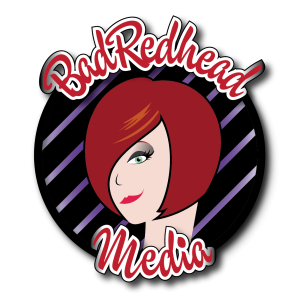Here are the Best Practices with Keywords by guest @evatopialit
We all know that Amazon lets you plug in keywords — seven to be exact — in order to help readers find your books. But, did you know that the manner in which you combine those keywords will have a dramatic effect on your book’s discoverability? Here are some best practices with keywords that you can try out immediately:
Be Logical
Let’s assume you’ve written a science fiction novel revolving around military intelligence. When trying to imagine what consumers will type into their Amazon or Google search engine, consider the genre of your book first. Then the individual plot points or character traits. For instance, customers are most likely to search “science fiction military” but not “fiction science military.”
Some authors are getting clever with the title of their book by utilizing keywords in a parenthetical addition to their title. For example, the book “A Lesson in Love” by Kate Adele Rowe lists “Inspirational Christian Romance” on both the cover and as part of the title listing in Amazon. Because titles come up in search engine results, the author doesn’t need to list “inspirational” or “Christian” among the book’s keywords. This means she doesn’t need to use precious keywords because those listed parenthetically will automatically be discovered since they are part of the title.
More About Those 7 Words
You know that you can choose seven keywords, but did you know that those seven spaces in the Amazon dashboard will also allow for seven phrases? That’s right…phrases. This means that you don’t have to use up two valuable spaces for keywords such as romance and contemporary. Nope. Instead, you can combine those words and use just one precious space and write “contemporary romance.” The only thing you have to be aware of is the text limit in the field. You can even get more creative with phrasing and separate keywords with commas.
You should take into consideration elements of your story beyond its genre when dreaming up keywords. For instance, look at this example below:
Industrial Revolution, single mother, divorcee, strong female lead, drama, feel-good, forgiveness
If you count up the words in this list, there are certainly more than seven, but these clever phrasings are accepted by Amazon in accordance with their “only seven words” mandate. This example takes into consideration:
- setting (Industrial Revolution),
- character types (single mother, divorcee),
- character roles (strong female lead),
- plot themes (drama),
- and story tone (feel-good).
Search and Discover
Visit Amazon and simply type “books” into the search engine. Next, look at the genres on the left-hand side of the page. You might next choose “fiction.” Then, narrow your choices by selecting a more specific genre, such as “romance.” See what comes up first in this general search. Next, narrow the search and visit the books that are most like yours. Take note of the categories they appear in and consider using those categories and keywords for your own book.
Finally, put yourself in the mindset of your customer. Let’s assume you write contemporary romance. What would you search for? Do you want a contemporary romance with a strong woman at the center of the story? Are you interested in reading a feel-good romance? Think about what your customer would search for and try to plug-in applicable terms for your own book.
For my book, “Released” (written under my pen name Mia Fox), I started to think about the storyline as well as setting while determining keywords. In a nutshell, it’s a paranormal romance book about two teenage girls and the genie they release, who in turn, helps them through danger and romance. My keywords include:
- contemporary romance (selected as a secondary genre since paranormal romance is listed in the title),
- djinn (a searchable word used to describe genies)
- steampunk (selected for the setting),
- genies (because I wanted to cover my bases),
- new adult (selected for plot themes/audience),
- action adventure (selected for secondary genre purposes),
- and time travel (selected for secondary plot points).
Combined with advertising and social media promotions, the keywords I’ve chosen consistently results in this book receiving regular downloads.
Got any other book marketing questions? Drop me a line. I’d love to help! (For previous articles by Margery, click here).
Margery’s articles have appeared in national newspapers and she has also worked on publicity campaigns for nationally and internationally recognized companies. She was privileged to teach public relations at Pepperdine University in Malibu and provide countless professionals with private instruction on book packaging, marketing, and public speaking.
Margery holds a Bachelor’s Degree from U.S.C. and returned later to earn her Master of Arts degree in Professional Writing also from U.S.C. If ever stranded on a desert island, her one wish is to be with another writer.
You can find Margery online at:
http://www.evatopiapress.com
http://www.facebook.com/EvatopiaEntertainment
http://www.twitter.com/EvatopiaLit
For a more detailed plan on developing your book marketing,
purchase Rachel’s new book,
The BadRedhead Media 30-Day Book Marketing Challenge now on Amazon!
Already a 5-Star Reader’s Favorite!


Question about “You can even get more creative with phrasing and separate keywords with commas.” – Are you saying that within a keyword box, multiple words can be separated by commas? If someone searches will they only find it if all the words in the box are used? Such as “divorce, grief”